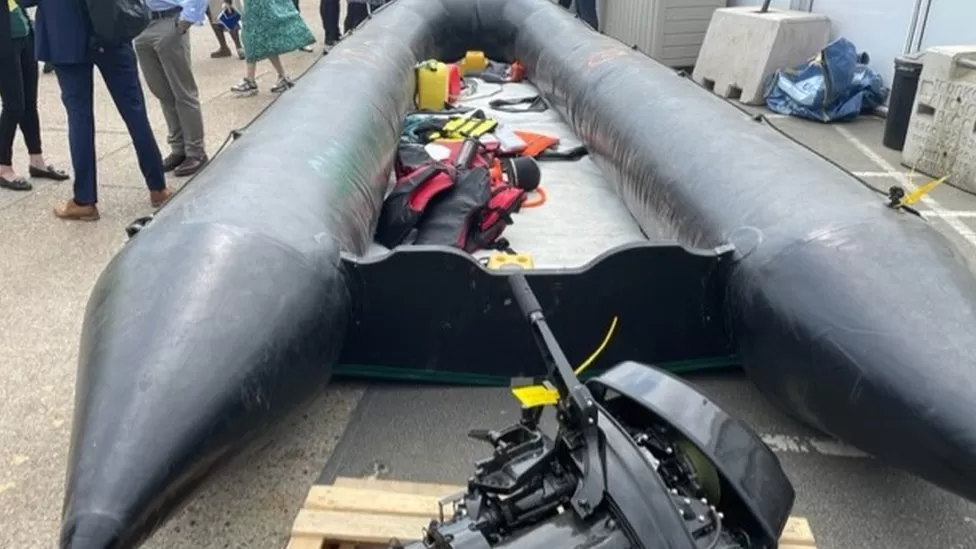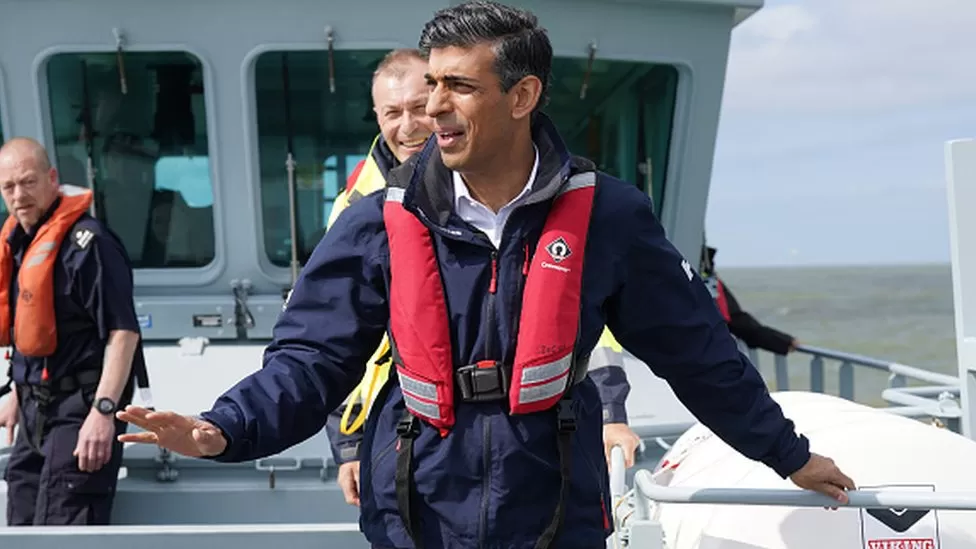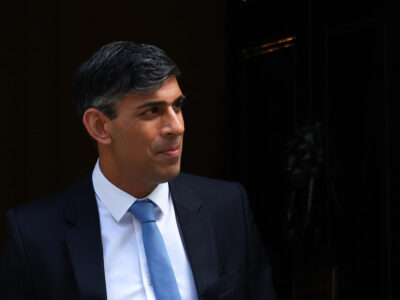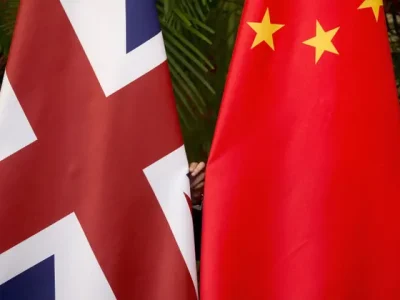“Think of a bouncy castle. It is made of the same stuff as one of those.” I am staring into a black inflatable boat. It is about seven metres long, and two-and-a-half-metres wide. A bit of plywood is glued on at the back to try to ensure it doesn’t take on water. I am in Dover, on the seafront, talking to officials from Border Force. This is one of the many small boats they have picked up in the Channel, some crammed with up to 60 migrants. There is the inner tube from a motorbike tyre lying on the boat’s floor. This had been a makeshift life jacket for a child. A big, bright yellow fuel can is also in there.
The engine strapped to the back needs refuelling to stand any chance of making it over the Channel. Some migrants have clung for more than 24 hours to this flimsy craft before being rescued. Everything the officials say screams danger: the constant danger migrants face on the water. “It is far more dangerous than the Mediterranean: the water is colder, and the swell is greater,” one officer says. He recounts an incident where they went to collect a migrants’ boat and as they pulled up alongside it, lots of those onboard stood up and the bottom fell out of the inflatable, plunging everyone into the sea.

Vast challenges
For the first time today, Prime Minister Rishi Sunak went out into the Channel with the Border Force to see them at work first hand. What is so striking about this hugely complex issue is the prominence Mr Sunak has given it in shaping perceptions of his competence. Because while he can claim some modest progress, there are vast challenges.
As political strategy goes, pointing at and putting up in lights something that you acknowledge has become a massive problem and has done so on your party’s watch is unconventional. And stopping the boats, as he promises, not merely reducing their number, will prove incredibly difficult, some say impossible. Then there is the backlog of asylum seekers. While Mr Sunak told us the government was “on track” to meet a goal of clearing the backlog of long-standing cases by the end of this year, as my colleague Mark Easton has noted, he will actually have to quadruple the rate of processing them to achieve that.
The latest Home Office figures show there were still, at the end of May, 74,410 claims dating from before July of last year awaiting an initial decision. With seven months to go, the Home Office needs to process more than 10,000 claims each month. The monthly average this year is less than 3,000 cases. And the total asylum backlog – as opposed to the long-standing cases – has actually increased by 36,000 in the last 12 months.

The next challenge is accommodation for asylum seekers – costing the taxpayer £7m a day. Two additional barges, announced today, and the conversion of two former military sites will help, but probably only scratch the surface. And, as the BBC’s Leila Nathoo revealed over the weekend, the cost of detaining and deporting people arriving in the UK in small boats under planned new legislation could cost £6bn over the next two years. So why is the prime minister attaching so much of his political reputation to this issue? His argument is one of fairness: fairness to taxpayers here, fairness to migrants risking everything, caught up in what he sees as a morally reprehensible people smuggling industry. And one about competence: letting something cascade out of control, and continue doing so, would illustrate the opposite.
He repeats – and it is true – that this is an issue, in different guises, confronting every comparatively rich country. And it is likely to do so for decades. We should take his promise to stop the boats seriously, but probably not literally: as one minister told me, a slogan saying “reduce the boats” would look half-hearted, even though it’d be more realistic. The government hopes it can illustrate intent and progress on the issue – and, yes, possibly blame opposition, whether political or legal, where they find themselves stymied.
![]()





